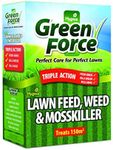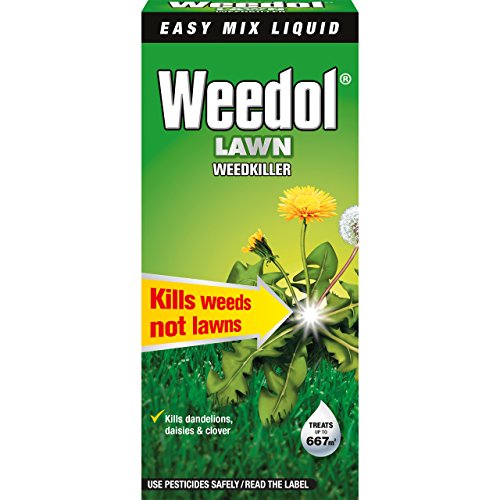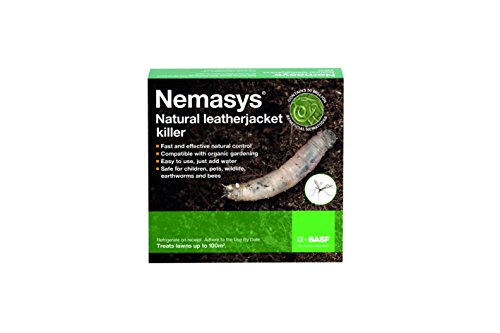Buying Guide for the Best Weed Killer For Lawns
Choosing the right weed killer for your lawn is crucial to maintaining a healthy and beautiful outdoor space. The right product will effectively eliminate unwanted weeds without harming your grass or other desirable plants. When selecting a weed killer, consider the type of weeds you are dealing with, the size of your lawn, and any environmental concerns you may have. Understanding the key specifications of weed killers will help you make an informed decision that suits your specific needs.Type of Weed KillerWeed killers are generally categorized into selective and non-selective types. Selective weed killers target specific types of weeds without harming the surrounding grass, making them ideal for lawns. Non-selective weed killers, on the other hand, kill all vegetation they come into contact with and are better suited for areas where you want to clear all plant life, such as driveways or patios. If your goal is to maintain a lush lawn while eliminating weeds, a selective weed killer is the best choice.
FormulationWeed killers come in various formulations, including liquid concentrates, ready-to-use sprays, and granular forms. Liquid concentrates are economical and allow you to mix the solution to the desired strength, but they require a sprayer for application. Ready-to-use sprays are convenient and easy to apply, making them suitable for small areas or spot treatments. Granular weed killers are spread over the lawn and are often combined with fertilizers, providing a dual action of feeding the grass while killing weeds. Choose a formulation based on the size of your lawn and your preference for application.
Active IngredientsThe active ingredients in a weed killer determine its effectiveness and the types of weeds it can control. Common active ingredients include glyphosate, 2,4-D, and dicamba. Glyphosate is a non-selective herbicide effective against a wide range of weeds, while 2,4-D and dicamba are selective and target broadleaf weeds. Understanding the weeds you are dealing with will help you choose a product with the appropriate active ingredients. If you are unsure, look for a product labeled for the specific weeds present in your lawn.
Application TimingThe timing of application is crucial for the effectiveness of a weed killer. Pre-emergent weed killers are applied before weeds germinate and are effective in preventing weed growth. Post-emergent weed killers are used after weeds have appeared and are actively growing. For lawns, post-emergent weed killers are often preferred as they allow you to target existing weeds. Consider the growth stage of the weeds in your lawn and choose a product that aligns with the appropriate application timing.
Environmental ImpactThe environmental impact of a weed killer is an important consideration, especially if you have pets, children, or are concerned about local wildlife. Some products are designed to be more environmentally friendly, breaking down quickly in the soil and posing less risk to non-target plants and animals. Look for products labeled as safe for use around pets and children or those that are certified organic if environmental impact is a priority for you. Balancing effectiveness with environmental safety will help you choose a product that aligns with your values.



















